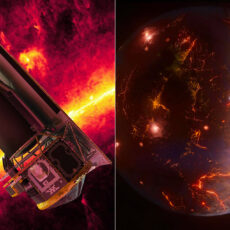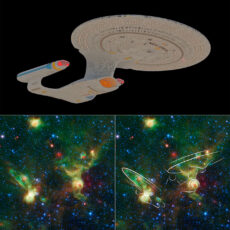
NASA’s Spitzer Space Telescope may be retired, but it still has a treasure trove of images that astronomers are still analyzing, including this one showing streams of dust flowing toward the Andromeda Galaxy’s supermassive black hole.

Most know that Andromeda is a barred spiral galaxy, and the nearest major one to the Milky Way. The Milky Way and Andromeda galaxies each contain a central supermassive black hole (SMBH), and will eventually converge near the center of the newly formed galaxy over a period that may take millions of years, due to a process known as dynamical friction.
- SMARTPHONE-POWERED SKY TOUR: No experience needed! Just dock your phone, launch the StarSense Explorer app, and follow the on-screen arrows to locate...
- PATENTED STARSENSE TECHNOLOGY: Unlike other astronomy apps, StarSense Explorer uses sky recognition technology to turn your phone into a celestial...
- TONIGHT’S BEST TARGETS, INSTANTLY: The app generates a curated list of the top objects to see based on your time and location. See planets, bright...
These dust streams can help explain how black holes billions of times the mass of our Sun can satiate their big appetites but remain ‘quiet’ eaters,” said NASA’s Jet Propulsion Laboratory.










